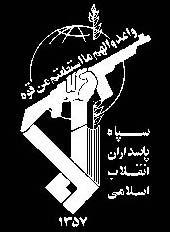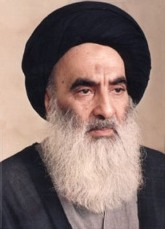Iraq Study Group Report is Delusional
Iraq politicians have been decidedly nonchalant about the Iraq Study Group's report; the Iraqi media even more so and most the public are unaware of it. Their disregard is well founded. Even if the report does make a bleaker assessment of the situation in Iraq than the US Government has hitherto been prepared to acknowledge, it is still a reiteration of many of the usual accusations, fabrications, distortions and half-truths. It is either spectacularly dishonest or spectacularly delusional in avoiding the underlying reality; namely, the United States is exacerbating the anarchy in Iraq by both its presence and continued interference. Whilst the reports acknowledges that Iraq is currently not governed as a unitary state and is quick to criticise Iraq's politicians for being sectarian, it fails to point out that the United States has been deliberately fermenting factional conflict.
Even the lexicon of the report owes more to propaganda than reality - the Shia, Sunni, Kurdish, Taqfiri and Baathist factions all have their militias, they are all involved in ethnic-cleansing and all have divided loyalties - yet in the report Shia militias are described as "death squads", the Sunni Militias as "insurgents" and the Kurdish militias as "security forces". The United States has consistently opposed the Shia majority; it is this more than anything that has led to the present state of anarchy.
It is quite apparent that the current Iraqi government - a government in name only - it is simply incapable of imposing central rule. In fact, Iraq is no longer a unitary State. Yet the United States is still trying to impose central rule. This is dangerous myopia. Yet whilst acknowledging that the situation is spiraling out of control, the report continues to advocate propping up the defunct al-Malki Government. Hence it is delusional.
The two most powerful men in Iraq are Sayyed al-Hakim (SCIRI) and Sayyed al-Sadr (Sadrists). Sayyed al-Hakim, like the Iraqi President, Jalal Talabani (PUK), Iraqi Prime Minister, Nouri al-Malaki (Dawa) and Kurdistan Regional Government President, Massoud Barzani (KDP) supports the dissolution of Iraq. Whereas Sayyed al-Sadr, like the Sunnite Iraqi Vice President, Tariq al-Hashimi (IIP) and Sheikh Harith Al Dhari (Association of Muslims Scholars) support centralism. Yet al-Malaki, like the previous elected Prime Minister, Ibrahim al-Jaafari, is dependent upon the support of Sayyed al-Sadr, which was withdrawn last week, after his meeting with Bush in Jordan. Therefore the United States will have to reappraise its relationship with the SCIRI and its Badr militia, since the al-Malaki Government is dependent upon the goodwill of Sayyed al-Hakim, without which it will fall.
The report calls for an international regional conference, a move that is strongly resisted by Sayyed al-Hakim and Jalal Talabani, since contrary to US claims, it is Saudi Arabia that is actively destabilising Iraq; not Iran or Syria. In fact, Iran is the only stabilising force in Iraq, a point that both Jalal Talabani and Sayyed al-Hakim have made last week. The report should have recommended that, as a matter of imperative, the United States should desist from making baseless accusations against Iran, since the propaganda is fuelling the Shia-Sunni sectarian conflict and undermines the current Shia led Government. Therefore until the united States is prepared to move beyond the limits of its own propaganda; it is far from clear what the Iraq Study Group expects to be gained from direct talks with Iran and Syria: the United States is certainly not about to request Iran dispatch the IRGC into Basra to bolster the Badr numbers, so that they might drive the Mahdi Army out of Southern Iraq.







7 comments:
Excellent analysis.
Fantastic post, its the same situation in Lebanon the US is trying to impose a pro-Western government on the people regardless of what they want.
It is either spectacularly dishonest or delusional in avoiding the underlying reality; namely, the United States is exacerbating the anarchy Iraq by both its presence and continued interference.
Absolutely, I think it's probably both.
If they hadn't kept trying to oppose the SCIRI, there wouldn't be 60,000 in the Mahdi army. There was less than a 1,000 in 2003.
Certainly, the Lebanon plan is part and parcel of the same Zionist Grand Strategy that the bush administration has adopted for the Middle East: namely, to oppose Islamic indigenous rule, in place of autocratic pro-Zionist puppet regimes.
President Ahmadinejad remarked that the United States and Israel are not of the region; that they intent is to profit from the regions riches and resources and ferment anarchy.
You are quite right Zhale; the Mahdi army is the corollary to the United States and British governments opposition to indigenous self-rule. Sayyed al-Hakim's prestige has grown exponentially as a result of his resistance towards the tyranny of the United States and Sayyed al-Hakim's has been dented by perceived non-resistance.
It is nonsensical that the United States would seek to diminish the power of both Sayyed al-Hakim and Sayyed al-Sadr. Yet they thought tat the Hariri gang acolyte would be able to rule Iraq.
Excellent post mate. Just as you said, Jalal Talabani, Massoud Barzani and Abdul Aziz al-Hakim have denounced the report and said they don't want a regional conference. But they've all called on Iran and Syria to brought into the picture.
Post a Comment